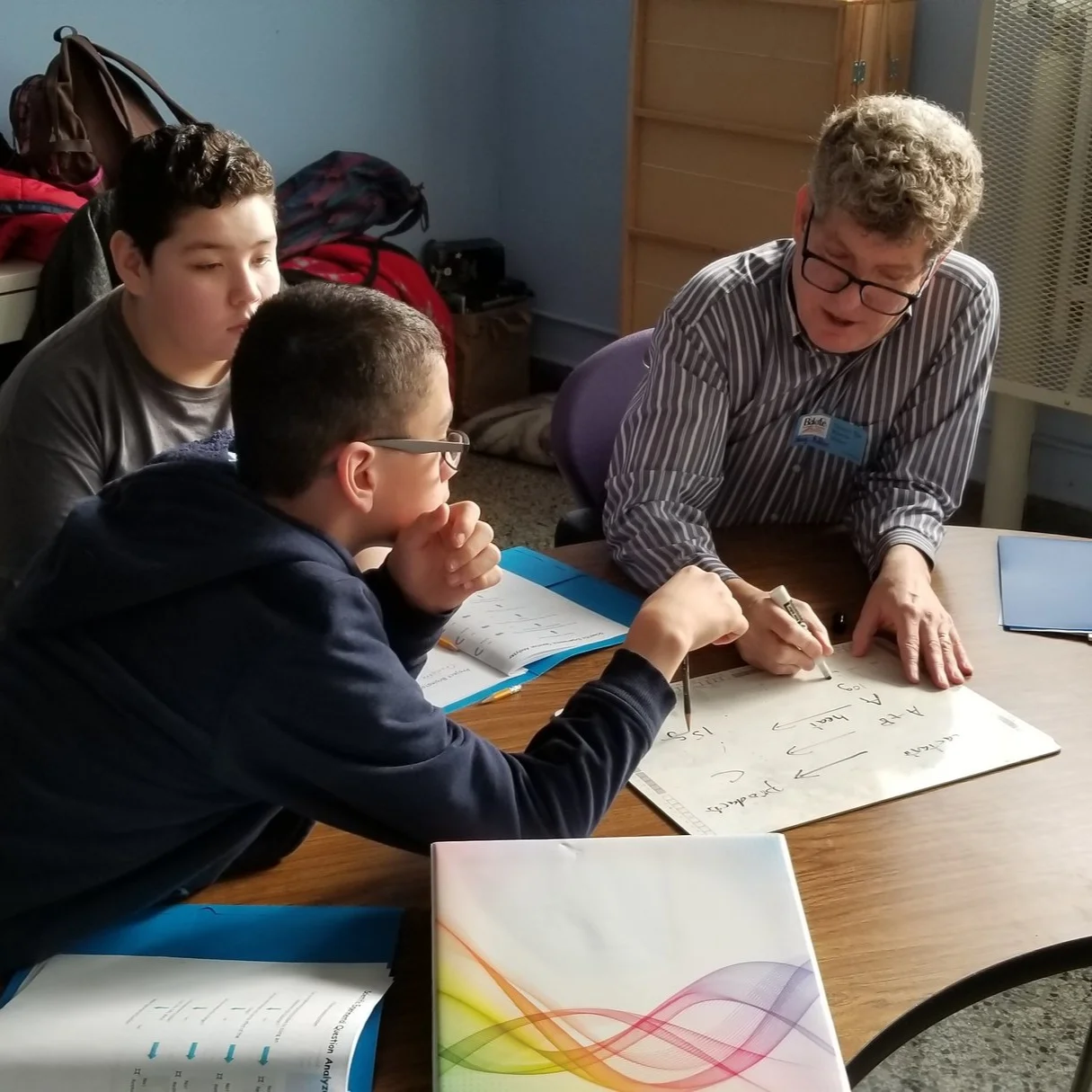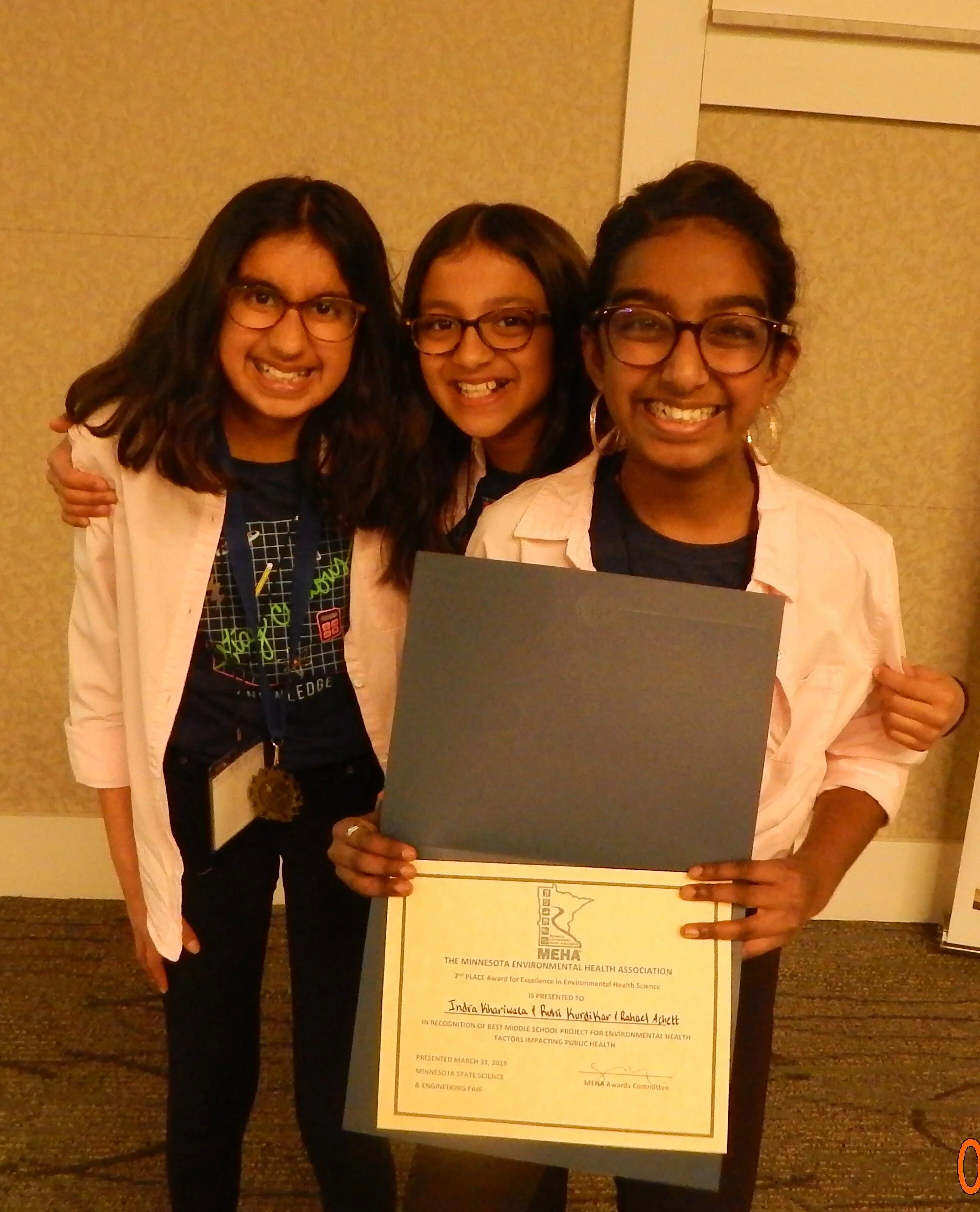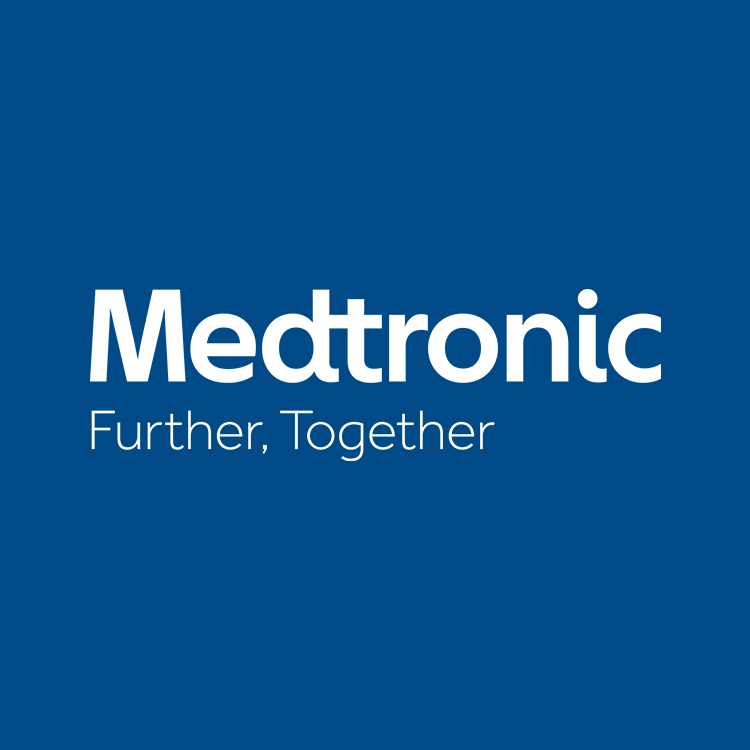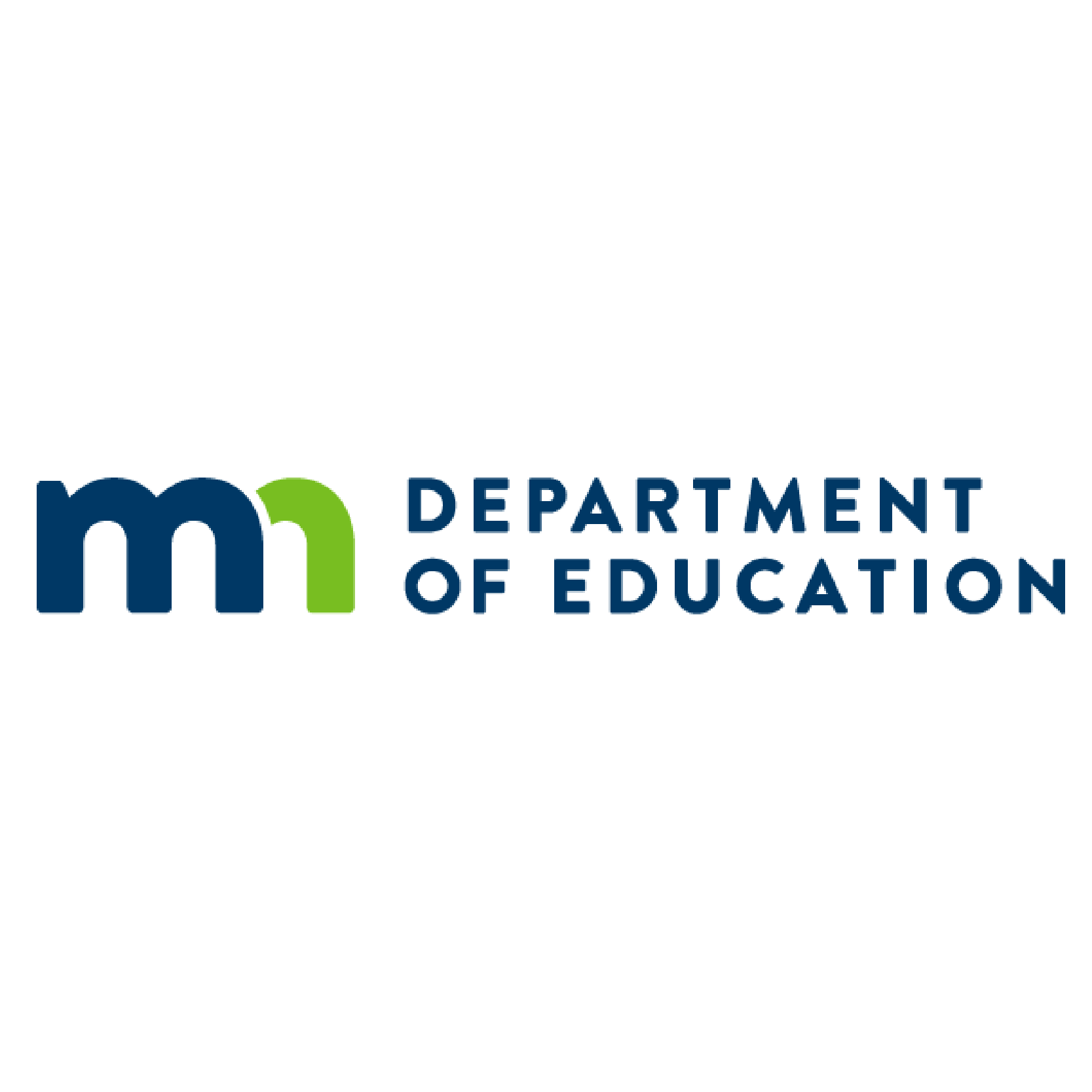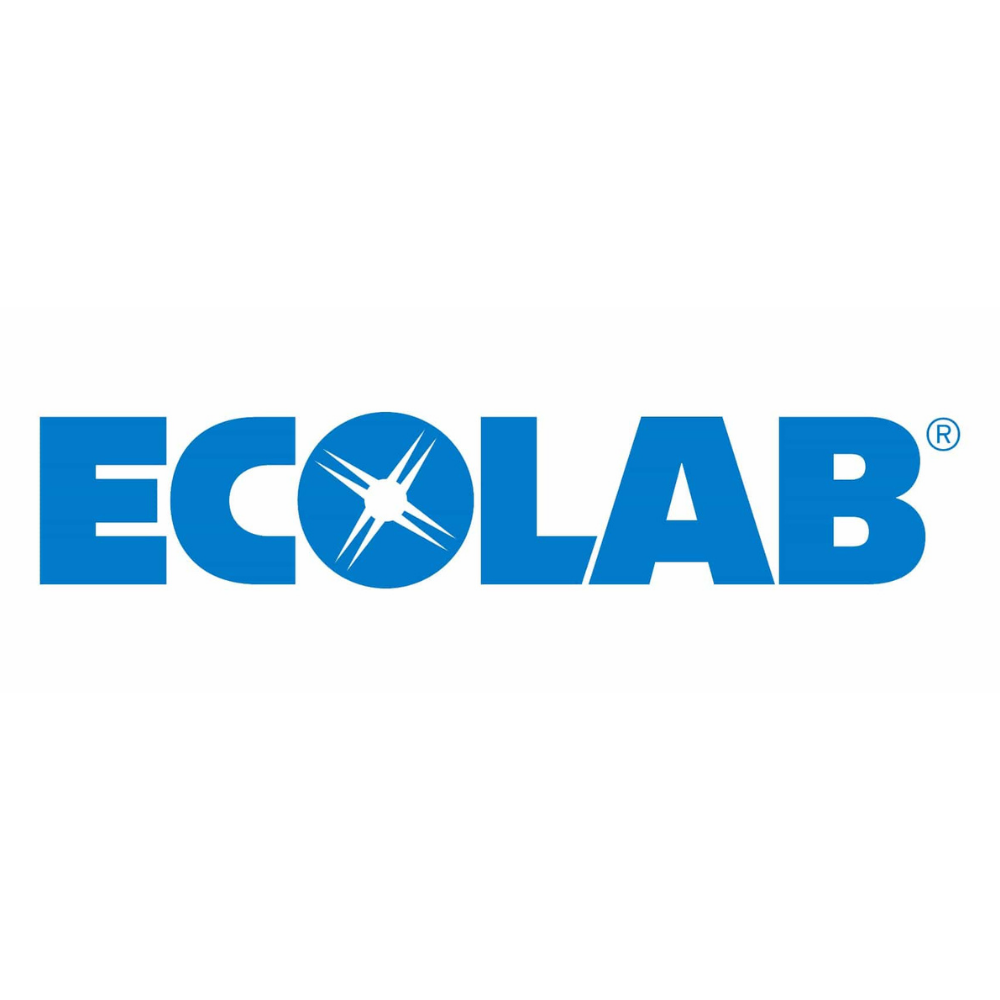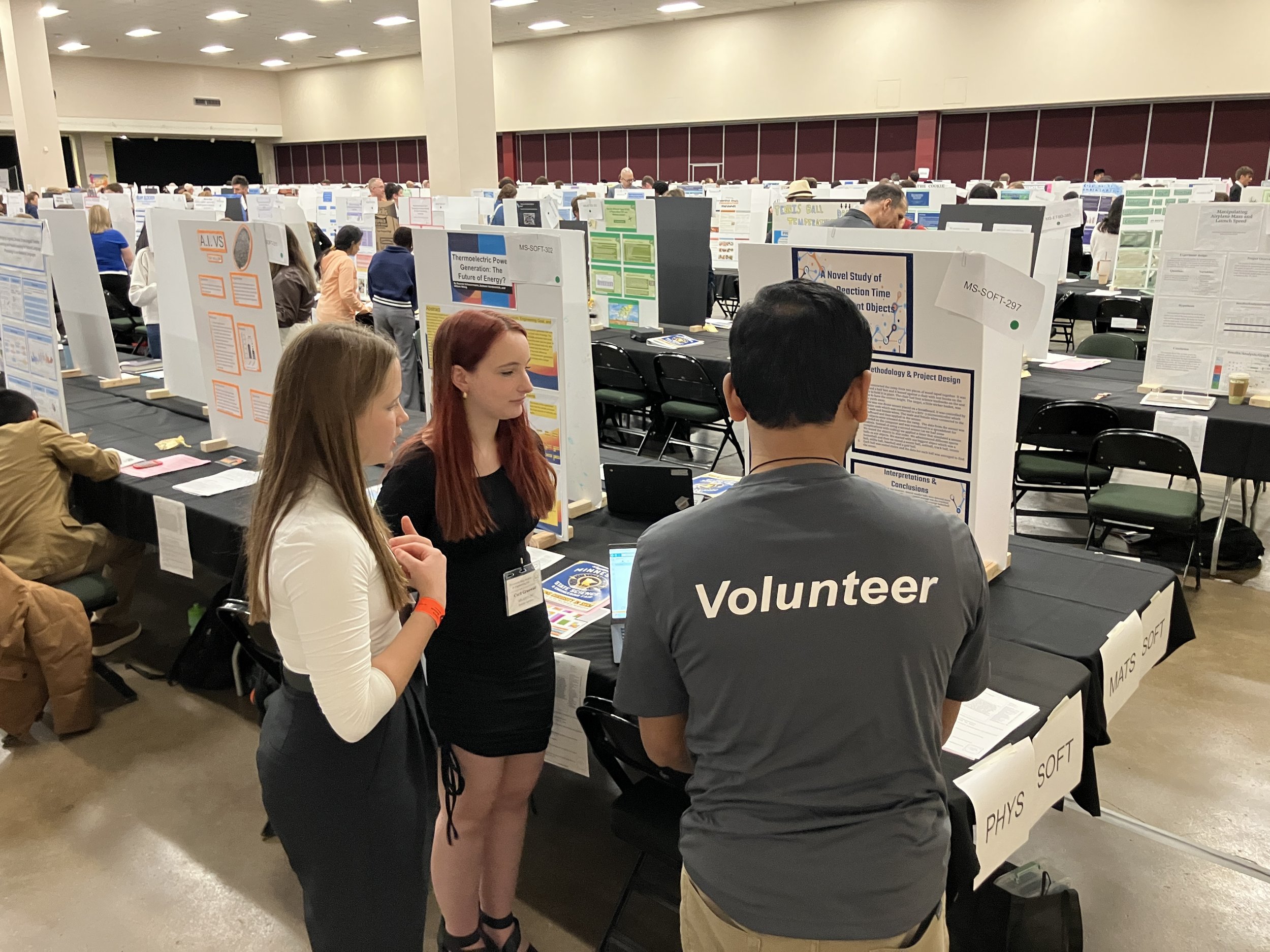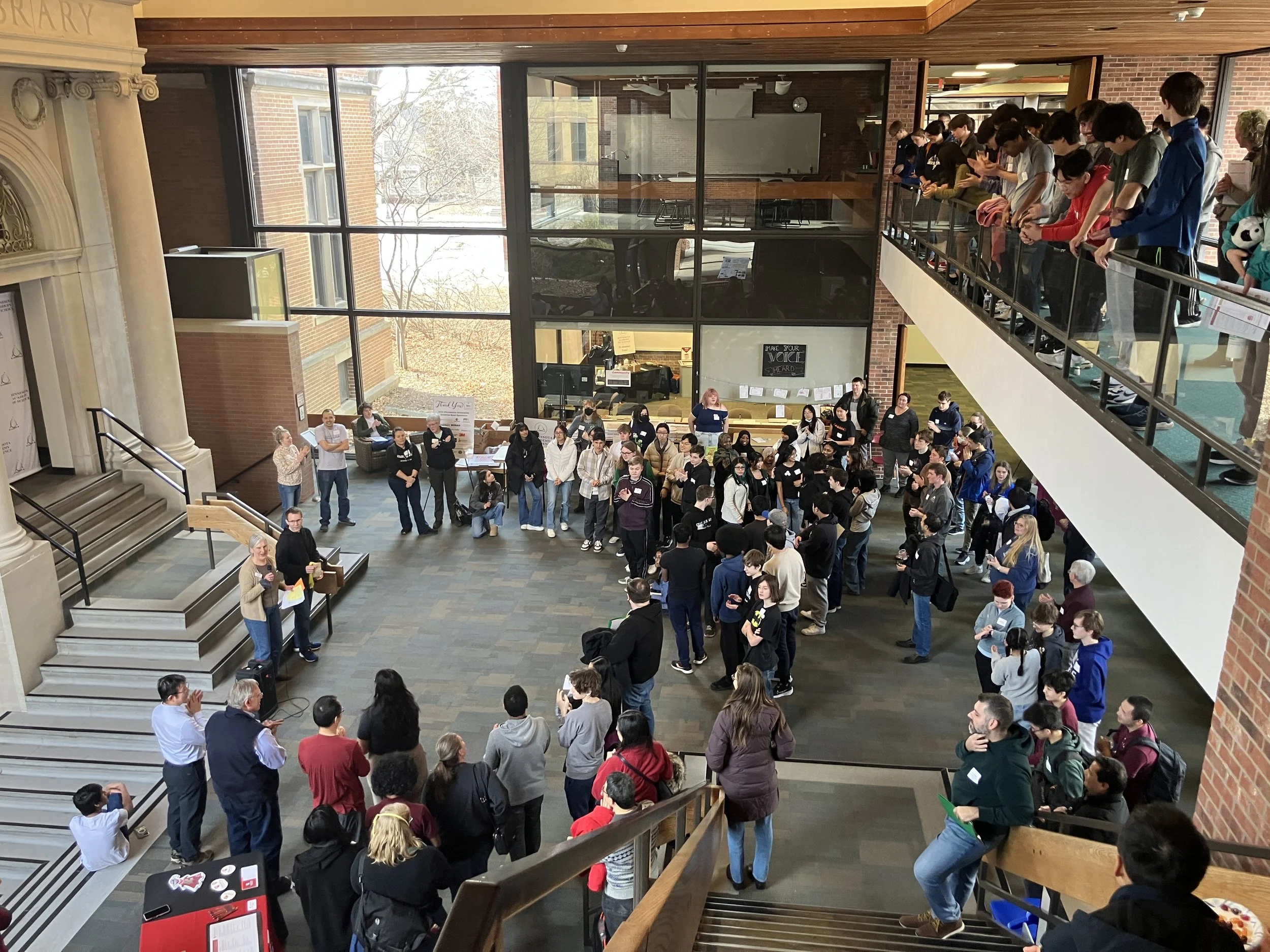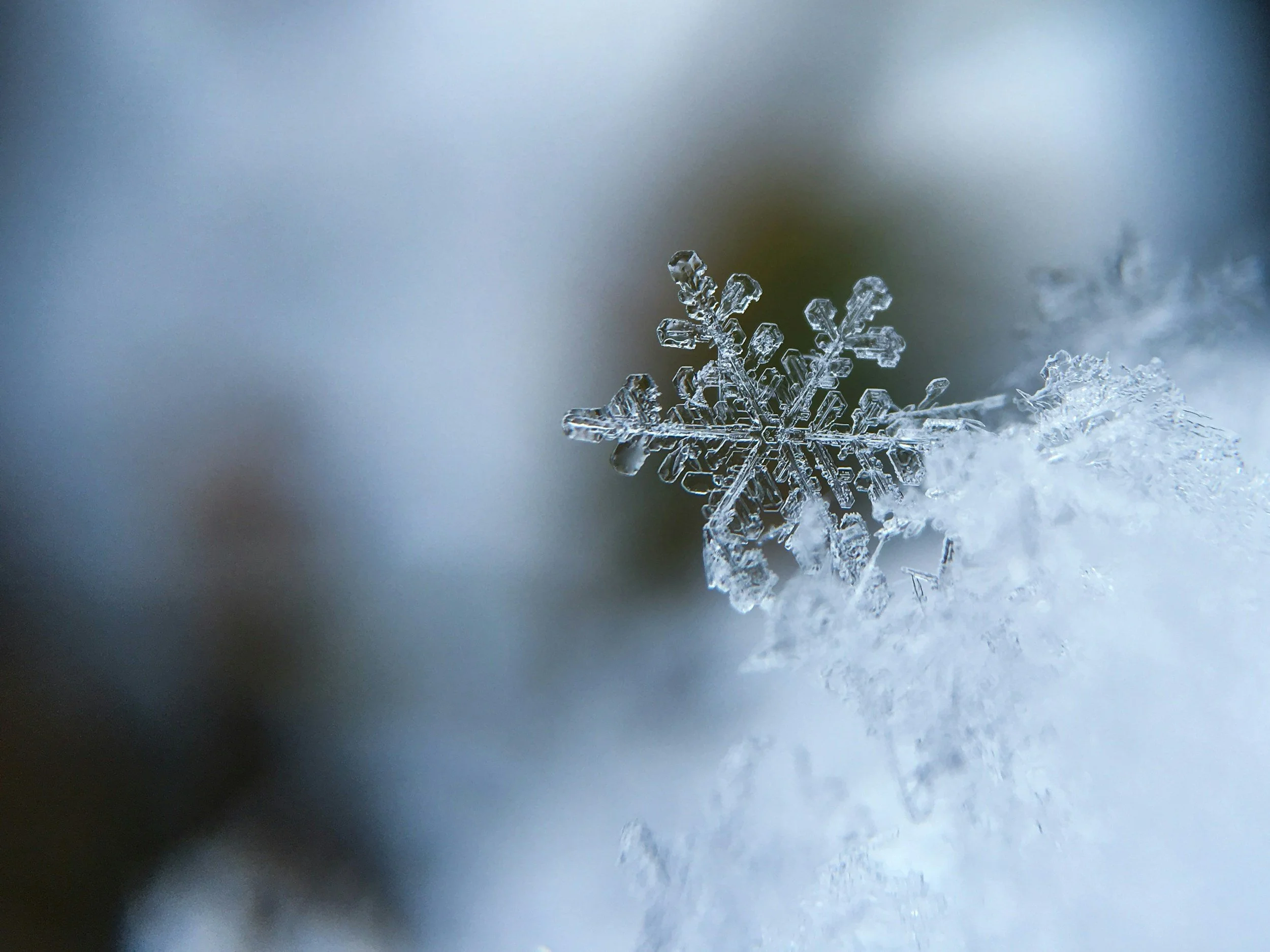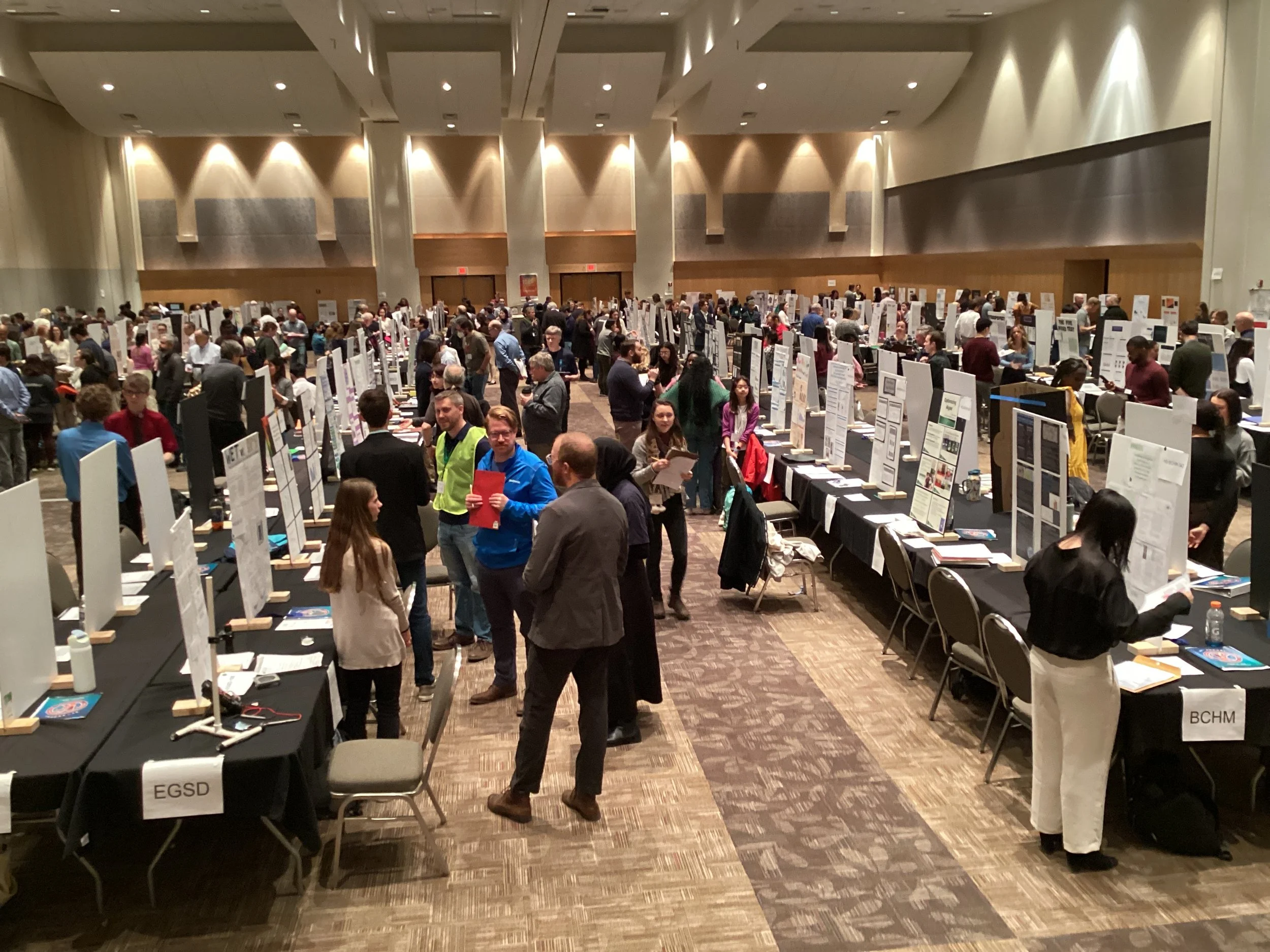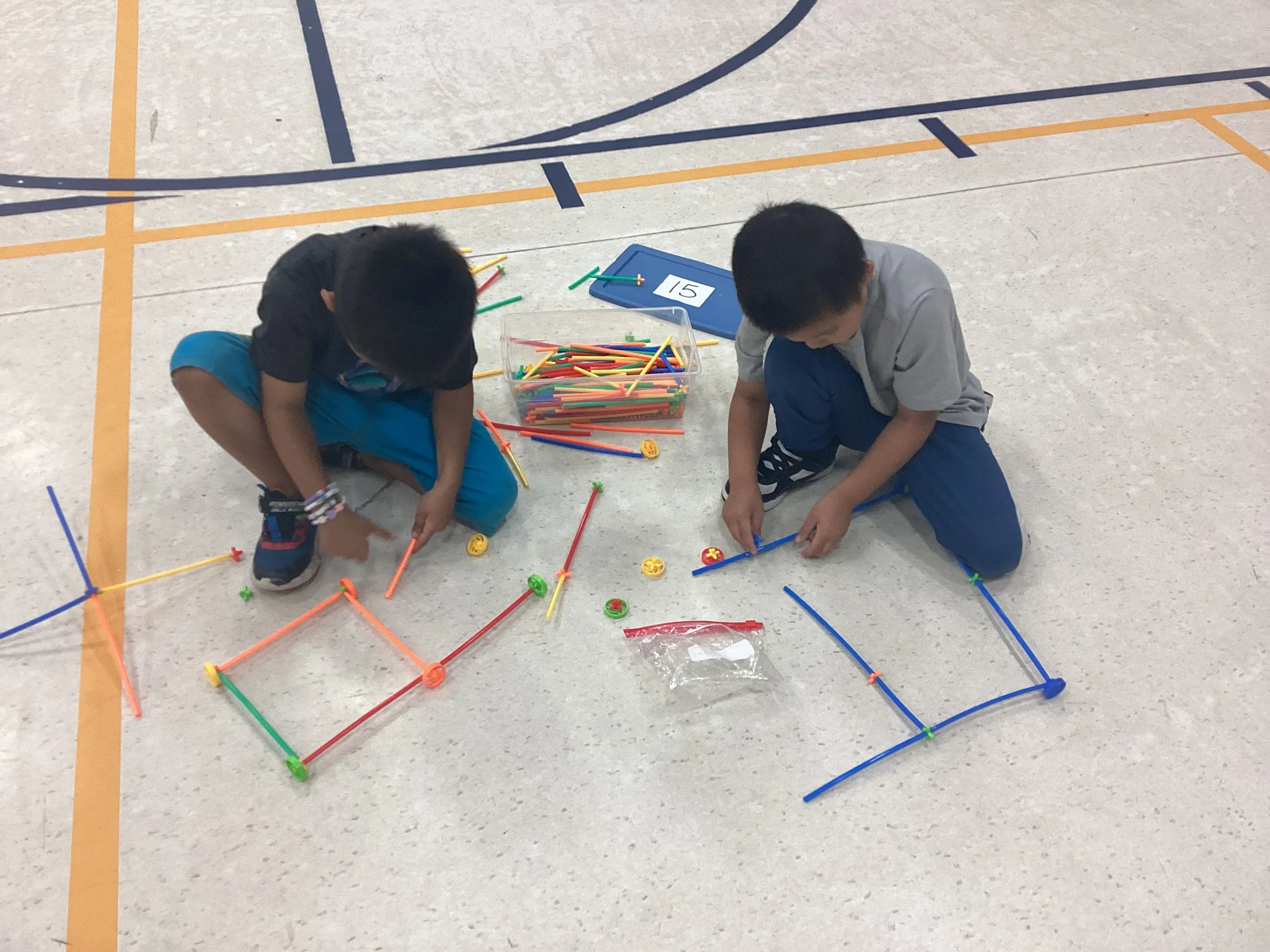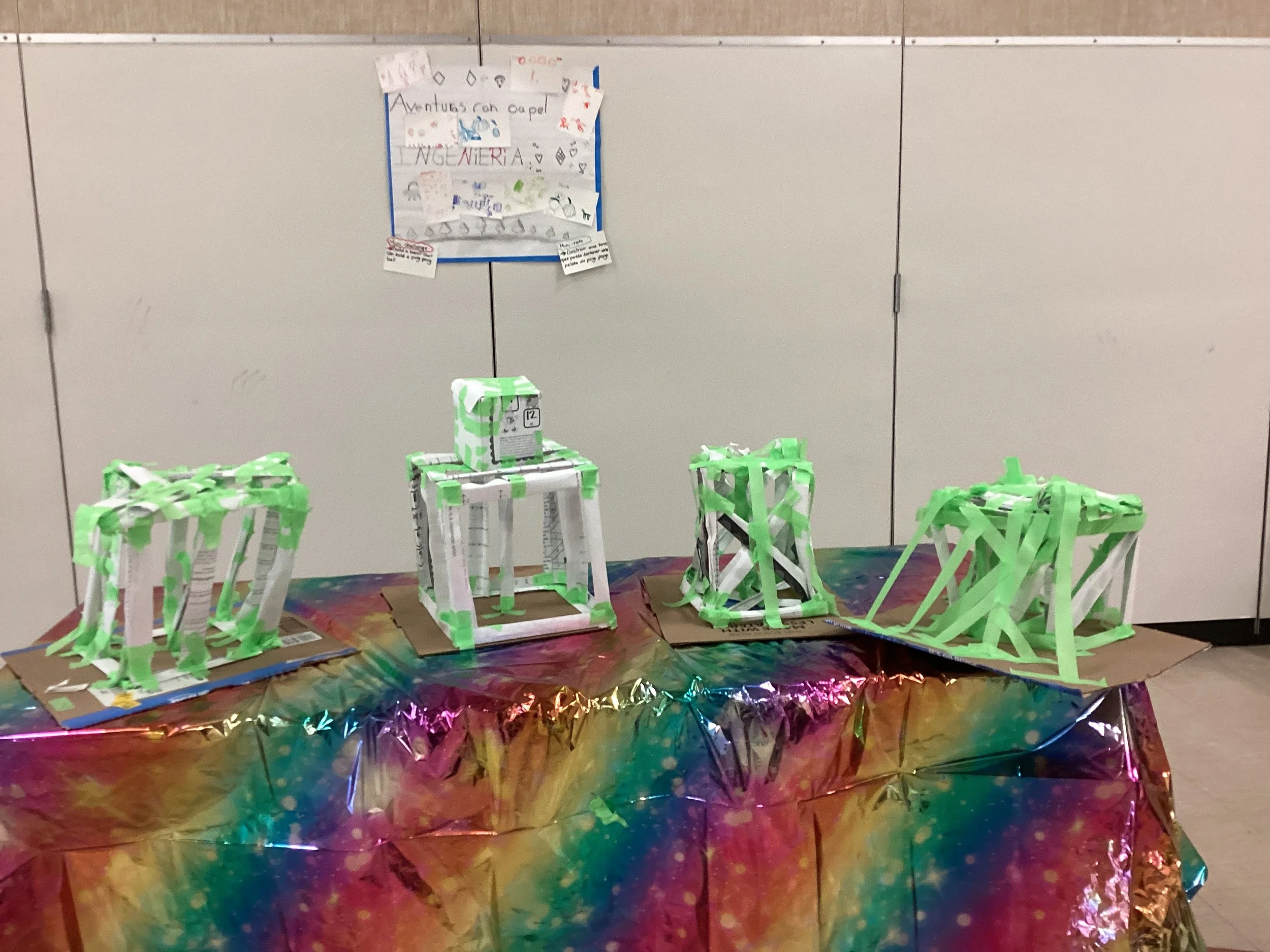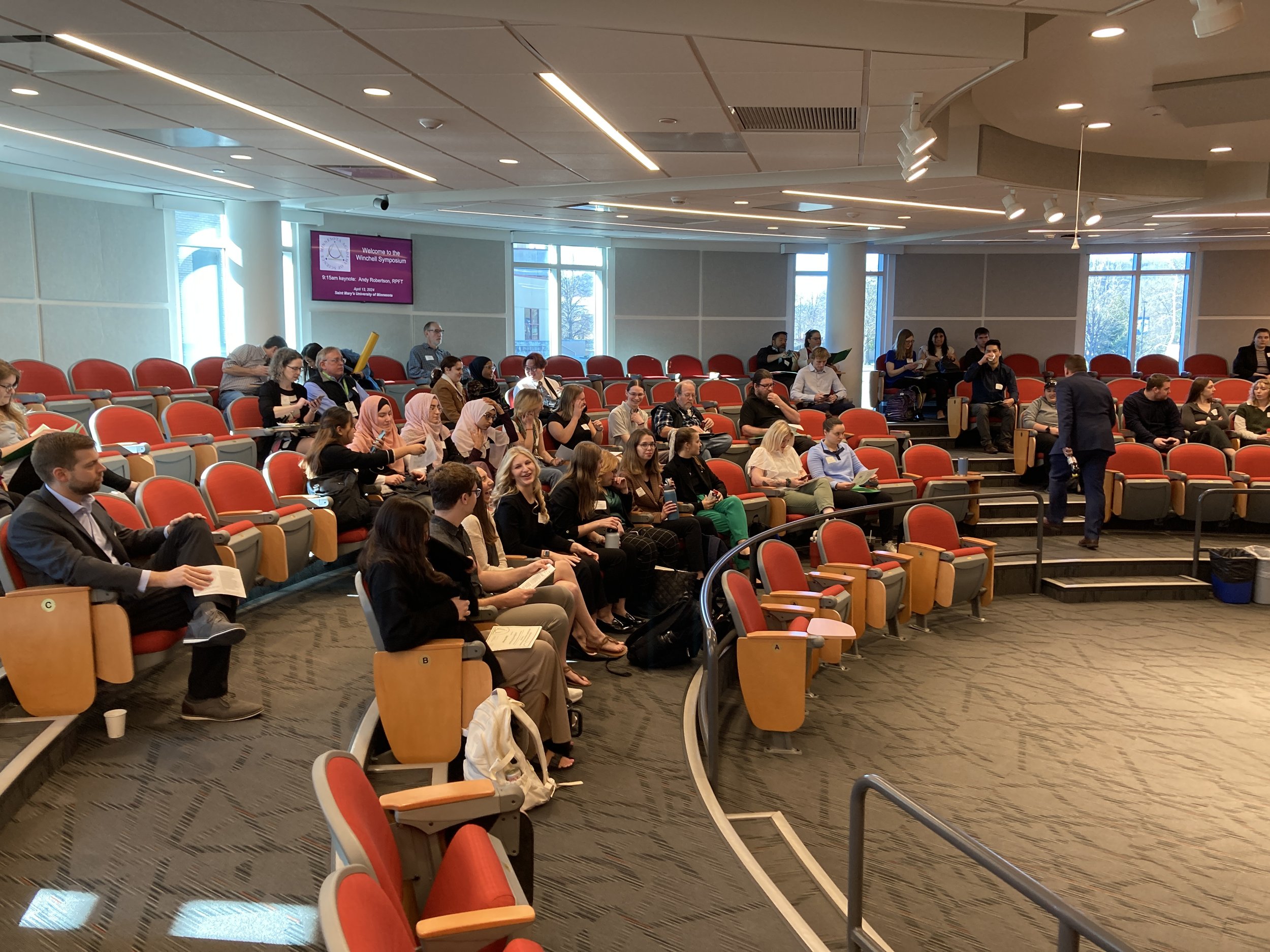Let us know what you think!
Please take a short survey to let us know how to make this newsletter more relevant and interesting to you! Your responses will guide the content of future newsletters.
Minnesota STEM News
Neuroscience: New research program funded by the Minnesota Legislature examines the brain science of substance addiction and new treatment options.
Limnology: University of Minnesota-Duluth professor shows evenness of species distribution is a strong measure of predicting how well the ecosystem is functioning.
Biomedical Science: Team of tick researchers from the University of Minnesota demonstrates the large power of small mobile labs at Itasca State Park.
Entomology: Insect pests pose threat to many of Minnesota's crops.
Computer Science: Team of professors and students at the University of Minnesota-Duluth studies the effect of nursery rhymes on brain waves of older adults.
Health and Ecology: Group of researchers, including from the University of Minnesota, demonstrates that healthy dietary choices also tend to be environmentally friendly.
Math: Winona State professor develops a predictive model for relapses in substance addiction.
Wildlife Biology: Program at Duluth's Natural Resources Research Institute uses artificial den boxes to study declining Fisher populations.
Kinesiology: University of Minnesota professor studies the connection between exercise and postpartum depression.
Renewable Energy: Minneapolis high school students learn electrical engineering principles while making solar suitcases for Kenyan refugees.
FORSE Kicks off at Bdote Learning Center!
On November 12, our FORSE mentoring and enrichment program launched for the school year with a brainstorming session between students and mentors at Bdote Learning Center. "The ideas were really flowing," reported Sara Gomez, FORSE program director, "I'm so impressed with the Bdote students and also impressed and grateful for the amazing staff at Bdote and our phenomenal volunteer mentors!"
Students and mentors work together in each step of the scientific process.
Now in its third year, FORSE pairs middle school students from populations traditionally underrepresented in STEM fields with STEM graduate students and professionals. Students and mentors work collaboratively to conduct research and prepare a science project. We are seeing students in our ground-breaking mentoring program:
show more confidence in expressing their ideas and interacting with their mentors
think more critically about their ideas and how to test them
act as leaders and helpers to students new to the program
Mentor opportunities are still available for the 2019-2020 school year. MAS seeks mentors with STEM experience to work with middle schoolers at Bdote Learning Center, a K-8 Dakota/Ojibwe language immersion school in Minneapolis. Mentors need to be available Tuesdays and Thursdays from 11 - 11:45 and/or 12:05 - 12:50. The program started last week and lasts 8-9 weeks. MAS provides mentors with materials and curriculum needed to help young scientists master the skills of research and experimentation.
Interested? Contact Ally Milenkovic (Assistant Program Director) Please share this opportunity!
Girl Power: Female Students in Science Fair
Girls from countries all over the world contribute to advances in STEM through Science Fair each year. According to a recent feature in National Geographic, the percentage of girls participating in the International Science and Engineering Fair (ISEF) has risen from 35% in 1960 to even representation in 2019. For the first time ever, the top five spots in the Broadcom MASTERS National STEM Competition were won by girls.
A team of girls celebrates winning an award for Excellence in Environmental Health Science at the 2019 MSSEF.
In our 2019 Minnesota State Science and Engineering Fair (MSSEF), girls won two of the four spots for projects to advance to ISEF: Gabriela Queiroz Miranda (Engineering Weighted 3D Printed Vests for Sea Turtles with Bubble Butt Syndrome) and Nitya Thakkar (Sulforaphane Improves Oxidative Stress Response in Caenorhabditis elegans via SKN-1).
However, there is room for improvement in female representation at the Science Fair. In the ISEF competition, girls made up less than a third of the entrants in the Mathematics and Engineering Mechanics categories. Girls were underrepresented in several categories in the 2019 MSSEF competition, including Mathematics and Embedded Systems.
At MSSEF, sponsors offer two awards targeted to female students: The Student Award for Geoscience Excellence from the Association for Women Geoscientists and the Graduate Women in Science Award. We are always looking for additional organizations to sponsor awards!
Numerous organizations are dedicated to leveling the STEM gender disparity, especially in technology and engineering. If you are interested in resources for female students or professionals, free student membership to the Society of Women Engineers, the Empowering Women in Science Group at the University of Minnesota, the statewide group Women Leading in Technology, or forming a girls coding group are a few of the many places to start.
Minnesota STEM Events
Climate Change Educator Workshop, November 20, St. Paul
Will Steger: Earth's Changing Climate, November 21, Mahtomedi
CitSciMN, November 22, South St. Paul
Regenerative Agriculture & Restorative Food Systems, November 25, Duluth
Bird Language Workshop, December 1, Bloomington
Science Slam, December 2, Morris
Transcending Boundaries: Connecting School, Career & Community Through STEM, December 3, St. Paul
Adults Night Out at the Minnesota Zoo, December 5, Apple Valley
Discovery Day at The Bakken: Coding, December 7, Minneapolis
Wild Weather in Minnesota, December 7, Maplewood
Science as Visual Medium, December 10, St. Paul
Spotlight Science: Plant Love/Hate Stories, December 14, St. Paul
Science Bowl Volunteers Needed!
Who says students get to have all the fun? Participate in Science Bowl as a volunteer - its a blast! We are still recruiting volunteers for the Science Bowl in January and February 2020.
Volunteers may register for one or both of the High School or Middle School competitions. Shifts are available as either a half day tournament volunteer (the first part of the tournament) or as a full day tournament volunteer. Training is provided on-site the day of each event.
Thanks to all who supported MAS during Give to the Max 2019!
Through your generous donations, we raised nearly $5,700 for our programs. A huge thanks to our donors and our fabulous Board of Directors for inspiring giving with their generous matching fund.
Although the fun of Give to the Max Day is over, donations are still being accepted!
Please consider a donation to MAS on Giving Tuesday (Dec. 3) or before the end of the year!
Critical support for Minnesota Academy of Science programs comes from our 2020 sponsors and event hosts, including: Minnesota Department of Education, Seagate Technology, National Science Teachers Association, Ecolab, 3M, Benilde-St. Margaret's School, University of St. Thomas, Macalester College, Crown College, and Verizon Wireless.
